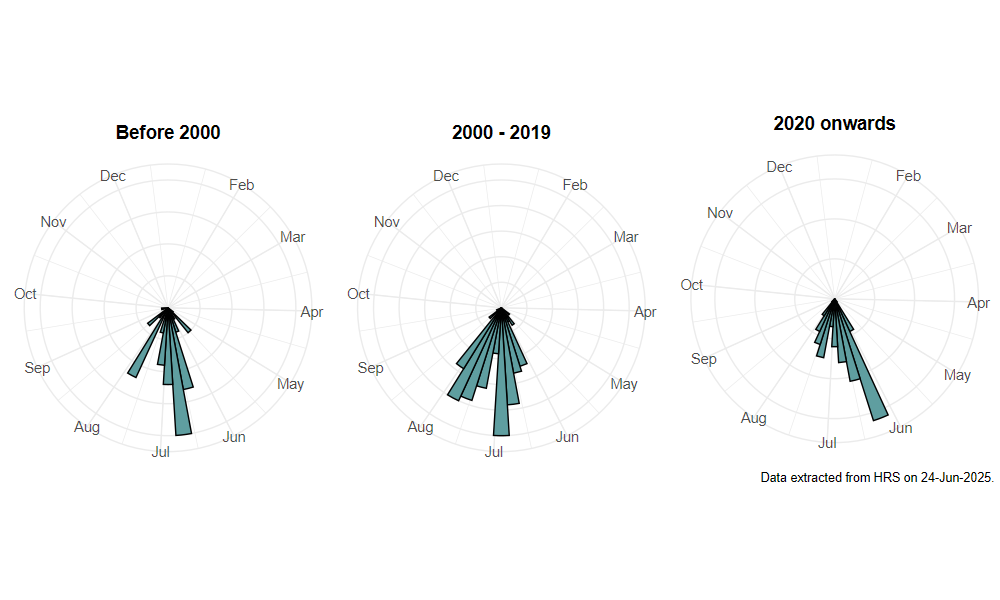Myolepta dubia (Fabricius, 1805)
Identification
Identification difficulty = 3. ![]()
![]() according to Ball & Morris, 20241
according to Ball & Morris, 20241
Synonymy
Myolepta luteola (Gmelin) in Stubbs & Falk (1983)2.
Biology
The larva develops in rot-holes in deciduous trees, including Beech Fagus sylvatica and Oak Quercus sp. The larvae in a given rot-hole may be of very mixed sizes, suggesting they require more than one year to complete development. Tends to be found in or near ancient deciduous woodland, but it has also been found in fenland in East Anglia (e.g. Wicken Fen) and a Chalk pit in Essex. This suggests that isolated trees in hedgerows and similar situations can provide suitable larval habitat. Adults can be found visiting flowers such as white umbels, usually in partial shade, and also sitting on leaves in dappled sunshine. Overwinters as larvae.
Flight period
The following plots show the number of unique records per week excluding those reported to be of immature stages.

Status
Lower Risk (Nationally scarce) - Ball & Morris, 20143. Notable - Falk, 19914. Rare (RDB3) - Shirt, 19875.
Distribution
A southern and eastern species that occurs south of a line between The Wash and The Severn.

Trends
The following plots show the Frescalo TFactor vs year and a map of the rescaled frequency (all records) for the species.
-
Ball, S., & Morris, R. (2024). Hoverflies of Britain and Ireland. WILDGuides (3rd ed.). Oxford: Princeton University Press. ↩
-
Stubbs, A., & Falk, S. (1983). British Hoverflies: An Illustrated Identification Guide (1st ed.). Reading: BENHS. ↩
-
Ball, S., & Morris, R. (2014). A review of the scarce and threatened flies of Great Britain. Part 6: Syrphidae. ( No. 9). Species status (pp. 1–130). Peterborough: JNCC. ↩
-
Falk, S. (1991). A review of the scarce and threatened flies of Great Britain. ( No. 39). Research and Survey in Nature Conservation (pp. 1–194). Peterborough: NCC. ↩
-
Shirt, D. (Ed.). (1987). Red Data Books: 2. Insects. Peterborough: NCC. ↩